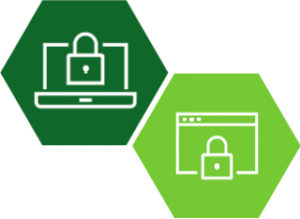COVID-19 has changed the working environment. Many of your employees and the employees of your third-party vendors are likely working from home — with remote access to enterprise networks. All this connectivity increases cyber risk and sheds doubt on whether or not these remote environments are compliant with applicable regulatory standards.
Ultimately, you’re responsible for any mistakes your third- and fourth-party vendors may make in securing your and your customers’ data. Your reputation will be ruined if customer data is exposed through malicious access to your system via a third- or fourth-party vendor.
New entry points for data breaches and non-compliance
You work with vendors every day — human resources, financial services, legal, tech support, web design, and more all contribute to your workflow. Every service provider creates a new potential entry point for malware or ransomware to infiltrate your systems.
You’re also at risk for non-compliance with various laws, privacy requirements, and regulatory bodies, including:
- The General Data Protection Regulation (GDPR)
- The Payment Card Industry Data Security Standard (PCI DSS)
- Health Insurance Portability and Accountability Act of 1996 (HIPAA)
- The Gramm-Leach-Bliley Act (GLBA)
- The Office of the Comptroller of the Currency (OCC)
Staying in compliance is even more problematic with your vendor’s vendors. Fourth-party vendors don’t answer to you and you have limited visibility into their cybersecurity preparedness.
The threats of data breaches and non-compliance due to vendor remote access also put your reputation at risk. With the state of the economy and uncertainty about the future, you don’t need your customers losing faith in you.
How can you utilize your VRM program to protect customer data and your own brand in this new remote-working world? Secure remote access by identifying and monitoring third- and fourth-party risks for cyberattacks with an effective VRM software solution.
Monitor the cyberhealth of your vendor ecosystem
Sharing confidential and important information with your vendors has become even more essential with the transition to working remotely. How can you guarantee your vendors are handling your and your customers’ data securely?
This is a crucial time for understanding and evaluating your vendors’ remote policies. Where is your data today, when and how is it being transmitted, and how is it being protected?
VRM providers allow users to monitor their cyber risks as well as the entire cyberhealth of their vendor ecosystem. Cybersecurity monitoring capabilities provide a clear picture of exactly where your vendor’s security position stands.
A VRM solution can grade by risk category, prioritize your risk, and detail how to mitigate each one. You’ll be able to manage vendor risk by gaining access to:
- Comprehensive risk assessments
- Centralized dashboards
- Non-intrusive scans
- Reports risk in financial terms using the FAIR model
- Classify vendor compliance based on industry requirements (NIST, PCI, GDPR, etc.)
- Cyber threat intelligence
Cyber risk scores can ensure that your third- and fourth-party vendors are secure and compliant. You’ll reduce potentially costly liabilities brought on by remote work, all while maintaining the ability to seamlessly provide services for customers.
Every successful VRM program should include a cyber risk score. This score is even more important now that both employees and vendors are introducing new cyber risks to your organization by accessing data remotely.

Defend yourself against vendor and enterprise risk
Learn about our best-in-class VRM/ERM solutions.


